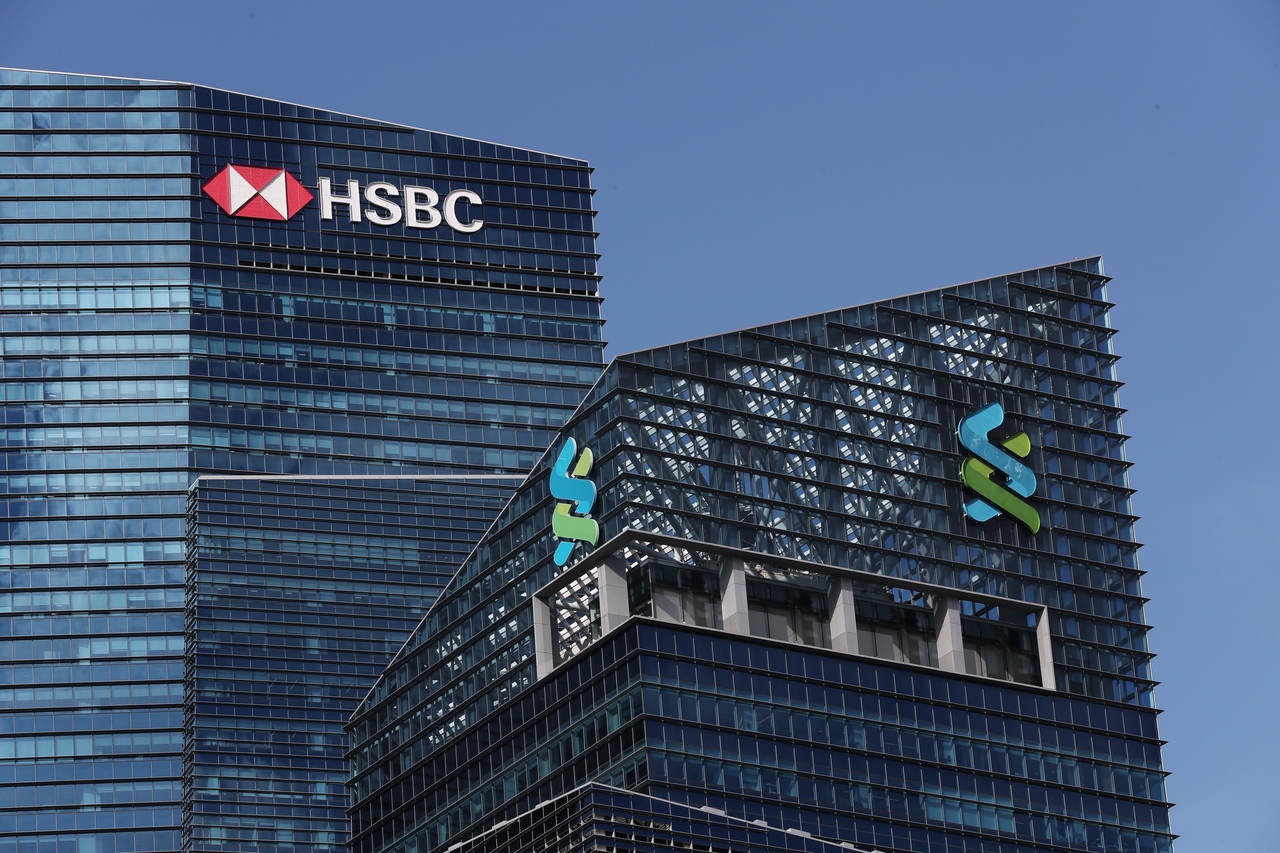HSBC, StanChart eye $624 million fee windfall on new China investment link
Sign up now: Get ST's newsletters delivered to your inbox

The "Wealth Connect" plan is set to launch in the second half of the year.
ST PHOTO: KELVIN CHNG
Follow topic:
HONG KONG (BLOOMBERG) - Global banks including HSBC Holdings and Standard Chartered are ramping up hiring to tap China's latest market opening - a new investment link with Hong Kong that could yield three billion yuan (S$624 million) a year in fees.
The investment scheme will allow bank customers in nine southern Chinese cities, such as Shenzhen, to invest across the border in Hong Kong and vice versa, further integrating the US$1.7 trillion (S$2.3 trillion) Greater Bay Area economy.
The "Wealth Connect" plan, set to launch in the second half of the year, could open up three billion yuan in annual fees for global banks and their domestic rivals including Bank of China, according to Bloomberg Intelligence estimates.
"This is a breakthrough for the retail investor to open up new ways of investing on the other side, across the boundary," said Mr Daniel Chan, head of the Greater Bay Area at HSBC, which is hiring 300 to 400 people in Hong Kong for its regional expansion. "We are in full swing preparation."
The programme is expected to start slowly. Mainland residents will initially face a one million yuan quota for investments in Hong Kong, meaning it will target the mass affluent rather than the super rich.
The investments will likely be limited to safe products, which may not appeal to many Chinese investors who prefer higher-yielding bets.
The plan will not provide "a significant benefit in the short term" given these initial caps, said Mr Paul McSheaffrey, a partner at KPMG in Hong Kong. "However, in the medium term, as more products are added, greater amounts that people can invest, then absolutely we will start to see that coming through."
The sheer size of the powerhouse region of 70 million people with more than US$400 billion of investable assets is hard to ignore, linking the finance hub of Hong Kong with the technology centre of Shenzhen and the manufacturing and transport clout of Guangzhou.
"It's a game of numbers in some ways," said Hong Kong-based Samir Subberwal, head of consumer, private and business banking for Asia at Standard Chartered, which is hiring or promoting 3,000 managers for its Asia wealth business over five years.
"The total revenue pool on account of this could be quite large."
The proposal will open a northbound channel for Hong Kong and Macau residents to invest in onshore financial products and a southbound channel for eligible Chinese residents to invest offshore.
More than 80 per cent of mainland investors in the Greater Bay Area plan to invest in Hong Kong through the wealth management connect, according to a survey conducted by HSBC and Nielsen Company (Hong Kong).
Mainland clients expect a 13 per cent annual investment return, on average, in Hong Kong fund products through the wealth connect, according to a survey by the Hong Kong Investment Funds Association and Cimigo.
Both investment routes will operate with a closed-loop currency conversion regime, meaning that proceeds from the redemption of products will be remitted the same way, similar to stock and bond connect programmes. There will be a 150 billion yuan cap in each direction.
Standard Chartered sees a "huge opportunity" particularly for southbound investments, as mainland investors' access to global wealth products lags behind their Hong Kong peers, Mr Subberwal said. Based on the bank's internal estimates, up to one million customers will look at investing through the southbound route.
According to consulting firm Z-Ben Advisors, mainland investors are also more familiar with Hong Kong financial products, which is likely to fuel interest in southbound investments.
Banks will need to have branches on both sides of the border to join the plan, or partner with another bank.
Given travel restrictions due to the pandemic, onshore banks can act as witnesses for new customers making southbound investments, according to the draft plan. There was no mention of a similar option for Hong Kong investors looking to invest in China.
Given their extensive branch networks in the area, China's four biggest banks including Industrial & Commercial Bank of China, along with HSBC and its Hong Kong unit Hang Seng Bank, could benefit the most from the programme, according to Bloomberg Intelligence analyst Francis Chan.
"The key players on both sides of the border would be the ones leading the game because of their existing customer base," said Mr Gilbert Lee, head of strategy and planning at Hang Seng Bank, which has 14 branches in the mainland area near Hong Kong. "We have put a lot of resources into making sure we are ready."
As the financial hub looks at other cross-border programmes including a so-called Insurance Connect plan that could allow Greater Bay residents to buy Hong Kong policies remotely, banks are looking to draw on their experience from the wealth link.
The stock connect links between China and Hong Kong, first launched in 2014, has gained traction, with record southbound flows last year.
"If the banks can provide a good track record through the wealth management connect, they can also apply the same approach with the insurance connect," Mr Lee said. "So it's a very important milestone for connect schemes."

